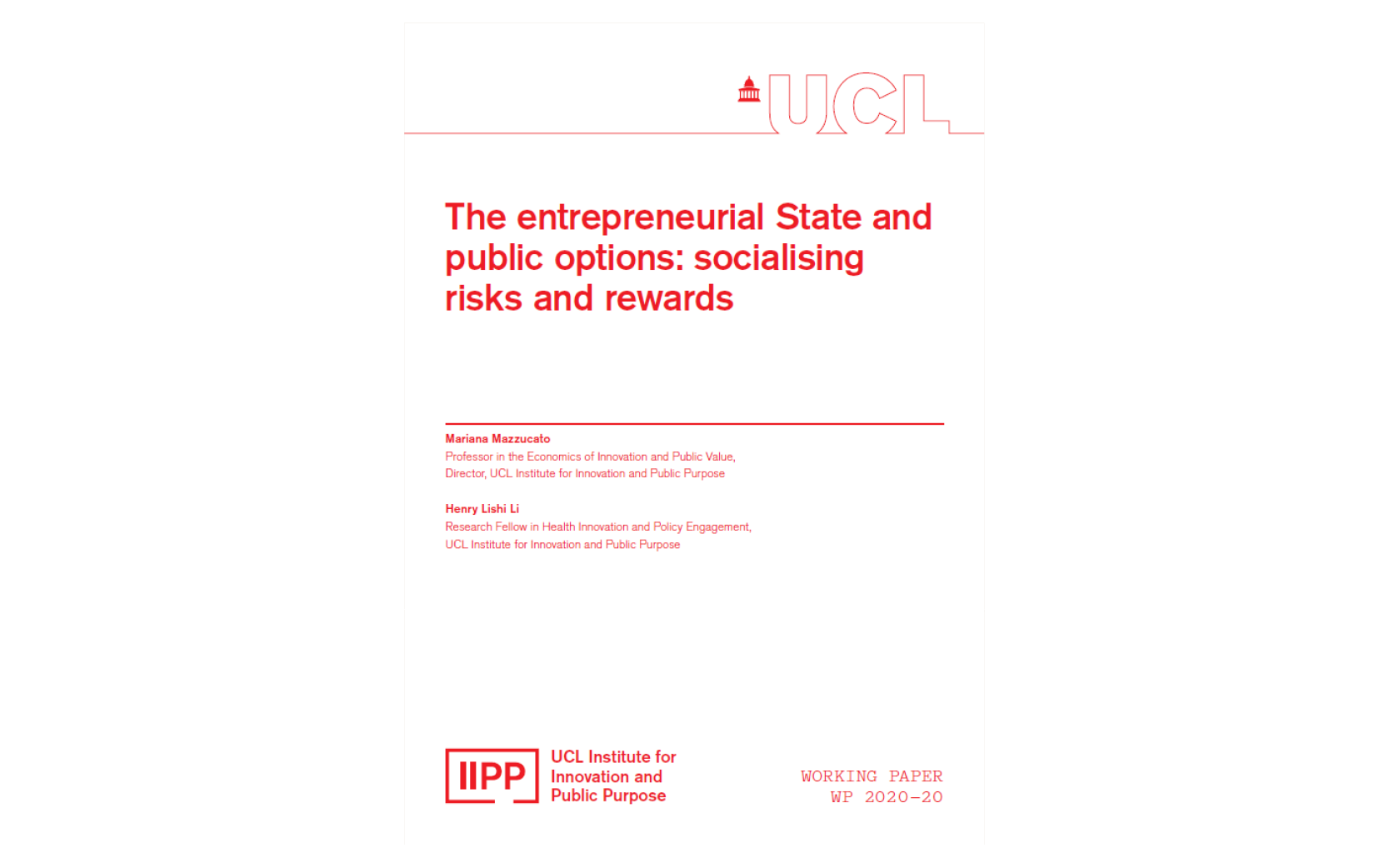The Entrepreneurial State and public options: Socialising risks and rewards

7 December 2020
UCL Institute for Innovation and Public Purpose (IIPP) Working Paper Series: IIPP WP 2020-20
Authors
- Mariana Mazzucato | Professor in the Economics of Innovation and Public Value, Director, UCL Institute for Innovation and Public Purpose
- Henry Lishi Li | Research Fellow in Health Innovation and Policy Engagement, UCL Institute of Innovation and Public Purpose
Reference
Mazzucato, M and Li, H. L. (2020). The Entrepreneurial State and public options: Socialising risks and rewards. UCL Institute for Innovation and Public Purpose, Working Paper Series (IIPP WP 2020-20). Available at: https://www.ucl.ac.uk/bartlett/public-purpose/wp2020-20
Abstract
This paper reflects on recent policy thinking on public options by looking at the role of the state – and economic policy – in modern capitalism. In traditional economic theory, the state is limited to ‘fixing markets’ and ‘enabling’ or de-risking the private sector. These assumptions are based on a limited understanding of value creation as something that only happens within the private sector. Value is understood as being enabled or redistributed by the state, but not co-created by it. And yet the state has often actively co-shaped markets, investing, innovating and taking high risks before the private sector is willing or able to. Understanding the market shaping and co-creating role of the state – beyond the fixing role – requires looking at how both risks and rewards can be shared between public and private actors. Public options, among other approaches such as equity stakes and conditionalities on reinvestment, are a powerful way to enable the state to govern public-private relationships to make sure that public investment delivers for the public interest.
 Close
Close

